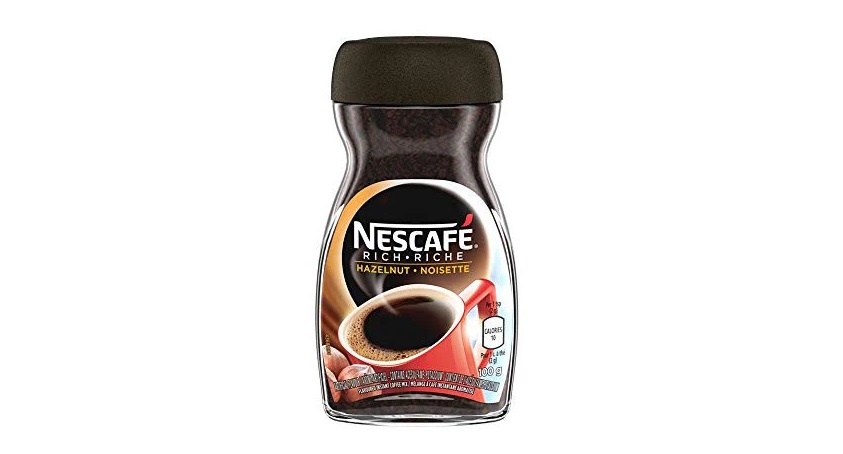
Nescafe stands as a towering figure in the world of instant coffee, celebrated for bringing quick, delicious coffee to millions around the globe. Since its inception, Nescafe has evolved into a staple in households and offices, offering a convenient caffeine fix with just hot water and a stir. Its popularity is underscored by a diverse range of products catering to varied tastes and preferences, making it a go-to brand for coffee lovers everywhere.
Key Takeaways
- Average caffeine content per teaspoon: Whether you’re sipping a Nescafe Classic or a richer Nescafe Gold, expect to consume about 30 to 90 mg of caffeine per teaspoon. This range accommodates both light and robust coffee drinkers, offering a customizable caffeine kick.
- Comparison with other instant coffee brands: Nescafe generally falls within a similar caffeine range as other popular instant coffee brands. This similarity provides consistency for users switching between brands without drastic changes in their caffeine intake.
- Impact of serving size on caffeine intake: The caffeine content can vary significantly depending on how much coffee you scoop into your cup. Understanding this can help you manage your caffeine consumption more effectively, ensuring you get just the right amount for your needs.
Caffeine Content in a Teaspoon of Nescafe Instant Coffee
When you reach for a teaspoon of Nescafe Instant Coffee, you’re dialing into a caffeine range that can vary quite a bit, typically between 30 and 90 mg. This variation largely depends on which Nescafe product you choose. For instance, Nescafe Clasico might land on the higher end of that spectrum, providing a bolder kick, while Nescafe Gold tends to offer a smoother, slightly less caffeinated experience. This flexibility allows you to pick the right caffeine level for your day, whether you need a mild morning nudge or a stronger wake-up call.
Factors Influencing Caffeine Content
The caffeine content in your cup of Nescafe isn’t just about numbers; it’s influenced by several key factors:
- Type of Coffee Bean: The choice between Robusta and Arabica beans can impact caffeine content. Robusta beans generally contain more caffeine compared to the smoother, slightly less caffeinated Arabica beans. Nescafe blends these varieties to balance flavor and kick.
- Brewing Method: While traditional brewing methods can vary the caffeine strength, instant coffee like Nescafe simplifies this. The process of creating instant coffee involves brewing the coffee first and then freeze-drying or spray-drying it. However, the initial brewing process and how concentrated the coffee is before drying can affect how much caffeine ends up in your teaspoon.
Health Implications of Nescafe’s Caffeine
Navigating through the world of caffeine can be tricky, especially when it comes to understanding safe consumption levels and potential health impacts. Generally, healthy adults are advised to limit their caffeine intake to about 400 mg per day, roughly the amount in four cups of brewed coffee. A teaspoon of Nescafe Instant Coffee, providing anywhere from 30 to 90 mg of caffeine, fits comfortably within these limits when consumed in moderation.
Benefits: Moderate caffeine intake can enhance focus and alertness, and may even contribute to improved mood and metabolism. For many, the morning cup of Nescafe is just the spark needed to start the day energetically.
Possible Side Effects: However, it’s important to consider personal tolerance as excessive consumption can lead to jitteriness, insomnia, heart palpitations, and elevated blood pressure. Particularly sensitive individuals might experience these symptoms even at lower levels of caffeine, suggesting a need for cautious consumption.
Nescafe Variants and Their Caffeine Differences
Each Nescafe product line offers its unique take on instant coffee, varying not just in flavor but also in caffeine content. For example:
Nescafe Classic: Often noted for its robust flavor, the Classic variant typically offers a caffeine content that aligns with the stronger end of the Nescafe spectrum. This makes it a favorite among those who prefer a more pronounced coffee experience.
Nescafe Gold: Engineered for a smoother and richer taste, Nescafe Gold contains slightly less caffeine per teaspoon compared to the Classic. This variant appeals to those who enjoy a milder morning cup that doesn’t compromise on flavor richness.
FAQs
How does Nescafe compare to brewed coffee in terms of caffeine? Nescafe Instant Coffee generally contains less caffeine per teaspoon compared to brewed coffee. For instance, a typical 8-ounce cup of brewed coffee can contain about 95 mg of caffeine, while a similar serving of Nescafe might have around 30 to 90 mg depending on the variant. This makes Nescafe a suitable option for those preferring a less intense caffeine boost.
How much Nescafe is safe to drink daily? Sticking to the general health guideline of not exceeding 400 mg of caffeine daily is wise. For Nescafe drinkers, this translates to roughly four to thirteen teaspoons of instant coffee per day, depending on the specific product’s caffeine content.
Differences in caffeine content among various Nescafe products? The caffeine content in Nescafe products can vary. For example, Nescafe Gold and Nescafe Classic may differ, with Gold typically on the lower side of caffeine content, offering a milder option. It’s important to check the packaging for specific caffeine details to match your preference and tolerance.
Final Thoughts
Understanding the caffeine content in Nescafe Instant Coffee can greatly enhance your coffee experience, balancing enjoyment with health considerations. Whether you prefer a mild Nescafe Gold or a more robust Nescafe Classic, knowing how much caffeine you’re consuming helps maintain that balance, ensuring your coffee habit fits comfortably within healthy daily limits.









